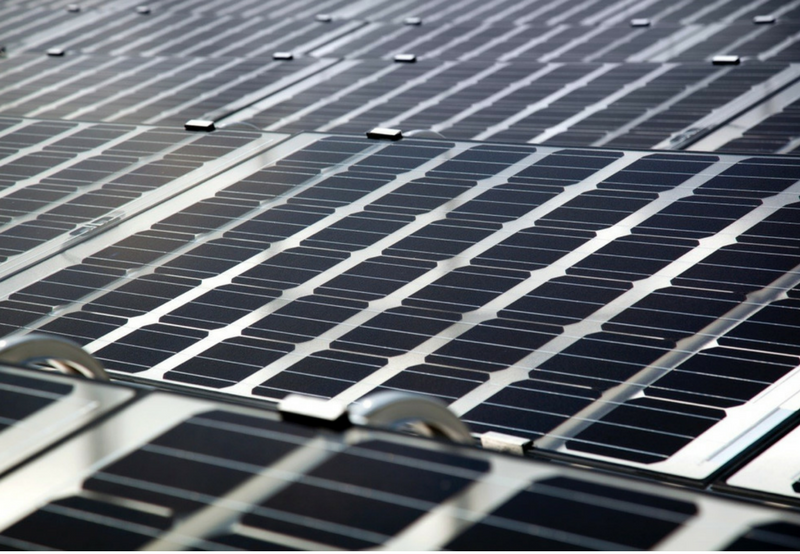
These manufacturers will supply to government projects
The Ministry of New and Renewable Energy (MNRE) has issued a set of guidelines to be followed by solar manufacturers for models of modules that will be utilized in government-owned projects and those set up for the sale of electricity to the government.
The issuance of these guidelines is the next step in a process that began in 2018 to ensure quality solar photovoltaic (PV) projects.
Dhruv Sharma of the Indian Solar Manufacturers Association (ISMA) commented on the MNRE notice saying, “The MNRE is concerned with standardization of cells and modules. This is a welcome move as the integrity of products is important. There are so many factories and companies that use sub-standard material to make cells and modules. There have been many instances where the actual power generation has been lower than the projected by unacceptable margins. This will put a check on it all.”
In October 2018, the MNRE issued an order to enlist eligible models and manufacturers of solar modules and published a list called the ‘Approved List of Models and Manufacturers (ALMM).’ In January 2019, the MNRE issued a notification stating that “After March 31, 2020, all government-owned solar projects and others set up for the sale of electricity to the government will be required to procure components from these enlisted vendors.”
The MNRE has determined the fees to be paid by aspiring applicants. The application fee for one model of the module will be ₹5,000 (~$73)/MW of the total installed manufacturing capacity for solar PV modules and ₹5,000 (~$73)/MW of the total installed manufacturing capacity for solar PV cells.
In case the application consists of multiple models, an applicant must pay an additional 10 percent for each model. In case, an applicant is already enlisted, for a particular model of solar PV module/cell and applies for the enlistment of another model of solar PV module/cell, then the application fee for such additional models will be 10 percent of the prevailing normal application fee.
In addition to the application fees, the applicant is also required to pay the charges for the inspection of the premises, covering the cost of travel, accommodation, and other allowances, for the both domestic and international trip by the inspection team. The inspection fee will be payable before the actual inspection, as and when informed by the ALMM Cell to the applicant.
For the inspection of each additional site of a manufacturer in the same country, 50 percent of the fee needs to be paid. For the inspection of sites of the same manufacturer in different countries, the entire fee for each country needs to be paid separately.
For units located in non-south Asian Association for Regional Cooperation (SAARC) countries, an inspection fee of ₹3 million (~$43,366) will be charged regardless of the capacity of the manufacturing unit. For units of up to 100 MW in SAARC countries, an inspection fee of ₹500,000 (~$7,253) will be charged. Moreover, for units of capacity more than 100 MW and up to 250 MW, the inspection fee will be ₹1 million (~$14,505) – ₹1.5 million (~$21,758).
Enlisted models and manufacturers will be subjected to random quality checks, including inspection of manufacturing premises and in case of any failure or non-compliance by the enlisted manufacturer, they will be removed from the ALMM.
The enlistment will be valid for two years from the date of enlistment and can be renewed later. Manufacturers interested in the renewal of enlistment will have to pay a renewal fee which will be 50 percent of the prevailing application fee.
When contacted, a government official told Mercom, “In the past, there have been complaints regarding the dubious nature of products being utilized in developing solar PV projects. This order will ensure that quality products (modules, cells, etc.) are utilized in project development. We are inspecting at the source. If vendors are not registered with us in the ALMM list, then the developers, EPC firms know not to approach them.”
The government official further said, “The timeline of order is such that within the next two years it will help in setting up indigenous production units for polysilicon, ingots, wafers, cells.”
This development is likely to boost both the quality of solar projects in India and the domestic solar manufacturing market. Recently, the MNRE issued an order stating that for the grid-connected solar PV projects developed by central ministries, departments, and central public sector undertakings, preference is to be given to domestically manufactured solar PV modules and other components such as inverters. Of this, solar PV modules have to be 100 percent locally manufactured, and inverters have to be at least 40 percent locally manufactured. Under the decentralized solar power category, the requirement of local content in solar street lights, solar home lighting systems, solar power packs/microgrid, solar water pumps, inverters, batteries, and any other solar PV balance of the system is 70 percent.
In the global solar industry, testing is usually conducted by recognized independent testing labs. This is a rare instance where the government officials will conduct the testing themselves.
Source By: www.mercomindia.com
Solar panel system , Residential Rooftop solar panel system projects , commercial / EPC solar projects , solar panel manufacturer Ahmedabad Gujarat , Solar inverter Gujarat India


